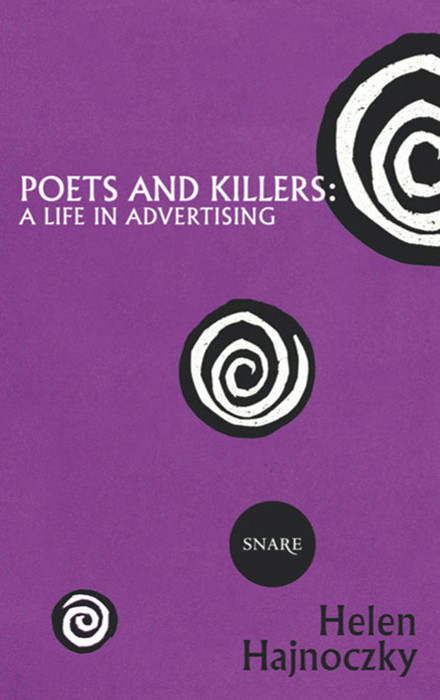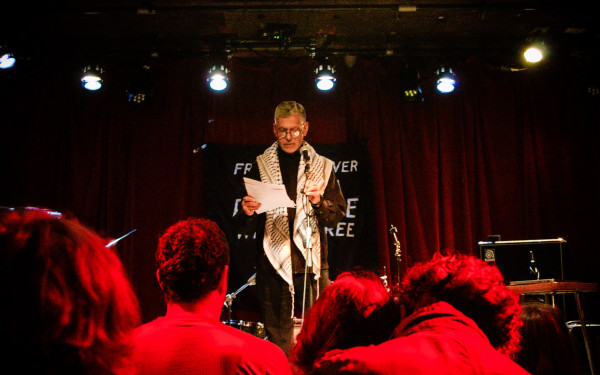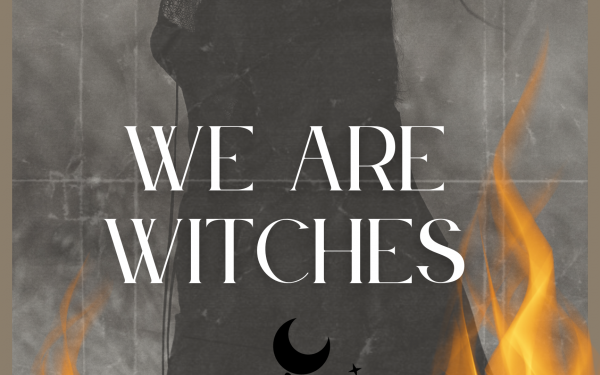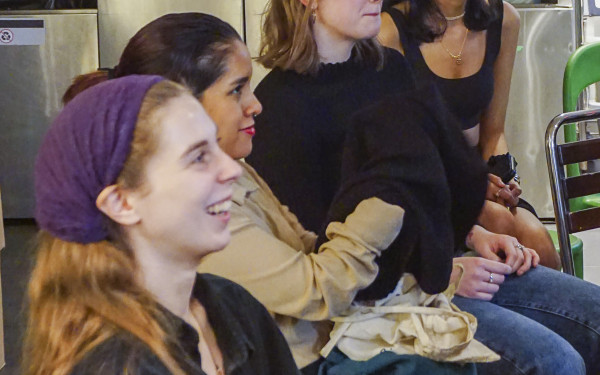Poems From Shillers
Hajnoczky’s New Book Provokes Thought
I’m a big fan of supporting indie culture. I like giving my money to small bands, though I’m loath to pay for things by Kanye West. It’s probably because I like culture that challenges accepted genre and medium constraints.
These aren’t exactly unique mindsets, but there you are. It’s rare that I encounter a book like Helen Hajnoczky’s Poets & Killers: A Life in Advertising, which really makes me reconsider my position on things like these, though.
So, in a certain sense, I have to applaud Hajnoczky. She has severely unsettled my self-satisfied culture-snob position on buying small volumes of experimental poetry.
The real problem here is that Hajnoczky has managed to create something truly worth reading in Poets & Killers: a slim volume of poetry that traces a man’s entire life through lines of advertising copy. Hajnoczky did not write a single line in any of these poems; they are all taken from real advertisements. The main character’s birth is chronicled in ads for baby products in the 1940s. It concludes with Internet ads for coffins. I read it in under an hour and I felt like it changed me.
If it were a question of the poems not working, I would have no problem advising people not to buy this book. But my feeling afterwards was—I wish I could share this with people, I wish everyone could read this. It’s a short trip, but it’s just that—a trip.
But I can’t in good faith advise people to spend $12 and tax on this thing. I don’t doubt that Hajnoczky poured her life into Poets & Killers. I don’t doubt that the research was painstaking and that she spent years forming it into a final, cohesive, polished whole. The explanatory essay at the end of the book makes it clear that a theoretical framework and a scholar’s intentions underlie the poems.
It’s 2010, however. This is not a unit of culture that should be trapped in the pages of a book that will never reach the average person. It should have been online, a slideshow of images cut from the very ads it was cut up from, and stripped of its essay epilogue. In that context, I would show it to all my friends, and I don’t doubt that they would too. It would go viral. It might not make money, but this book won’t either, and it costs a lot less to mass produce a website than a book.
This article originally appeared in Volume 31, Issue 13, published November 9, 2010.







